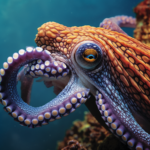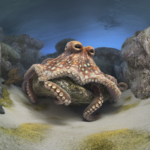Octopuses are fascinating creatures that inhabit the depths of the ocean. Known for their intelligence and unique abilities, they have captured the curiosity of scientists and marine enthusiasts alike. One question that often arises is whether octopuses sleep. Sleep is a fundamental behavior observed in many animals, but the sleeping patterns of octopuses are quite different from those of other creatures. In this article, we will explore the intriguing world of octopus sleep and delve into the various theories and observations surrounding this mysterious phenomenon. So, let’s dive in and uncover the secrets of octopus slumber.
Key Takeaways
- Octopuses do sleep, but their sleep patterns are different from those of humans.
- Octopuses have a variety of sleep states, including quiet rest, active rest, and REM sleep.
- During sleep, octopuses change their color and texture, which may indicate dreaming or processing information.
- Octopuses can also exhibit behaviors similar to sleepwalking.
- Understanding octopus sleep can help us learn more about their complex behaviors and cognitive abilities.
Understanding the Octopus: A Brief Overview
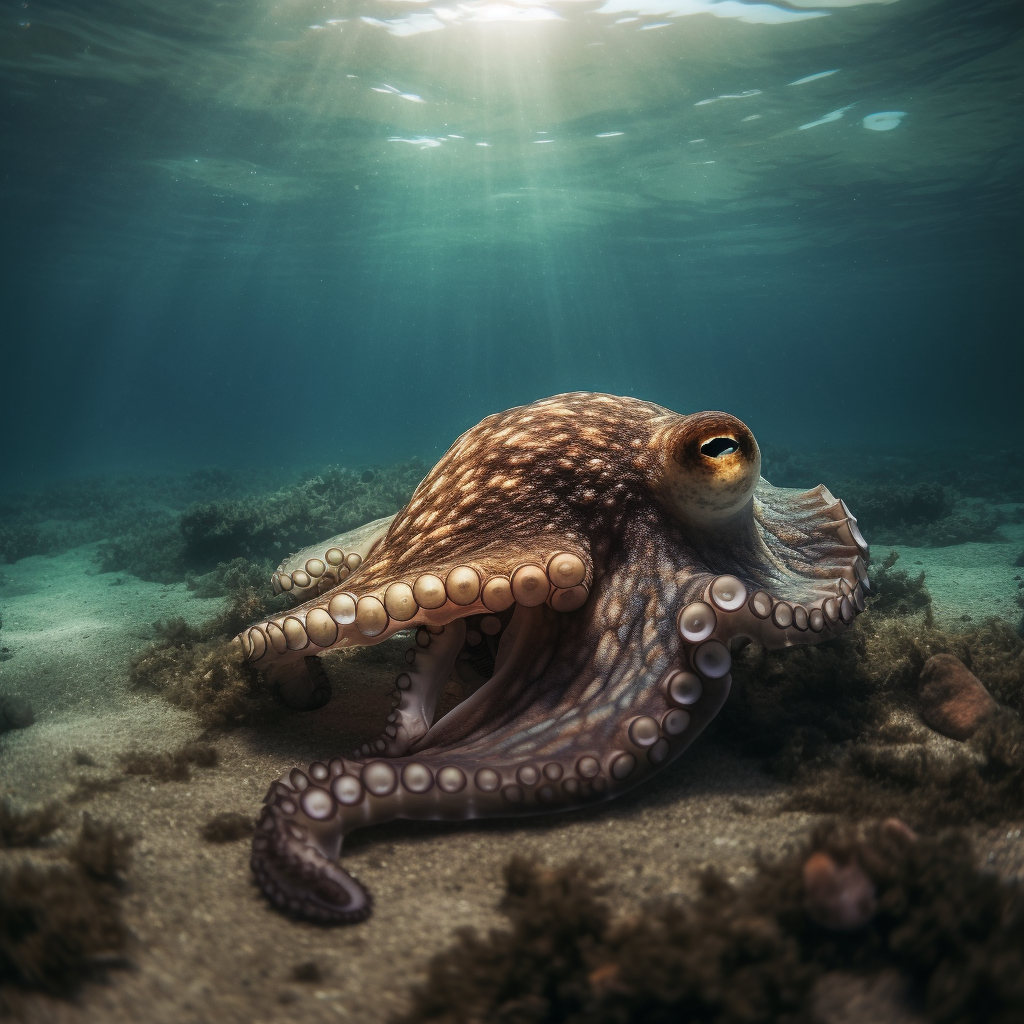
A. The Unique Biology of the Octopus
The octopus is a fascinating creature that belongs to the class Cephalopoda, which also includes squids and cuttlefish. These marine animals have captivated scientists and researchers for centuries due to their extraordinary biology. Let’s take a closer look at some of the unique features of the octopus.
-
Body Structure: Octopuses have a soft body with no internal or external skeleton. Instead, they rely on a muscular hydrostatic system that allows them to change their shape and squeeze through tight spaces.
-
Tentacles: One of the most distinctive characteristics of the octopus is its eight tentacles. These appendages are lined with suckers that help the octopus grasp objects and capture prey. Each sucker contains sensory cells, allowing the octopus to taste and touch its surroundings.
-
Camouflage: Octopuses are masters of disguise. They can change the color and texture of their skin to blend in with their environment, making them nearly invisible to predators and prey. This remarkable ability is controlled by specialized cells called chromatophores.
-
Complex Nervous System: Octopuses have a highly developed nervous system, with the majority of their neurons located in their arms. This decentralized structure allows each arm to function independently, giving the octopus incredible dexterity and problem-solving abilities.
B. The Octopus and Its Environment
To understand how octopuses sleep, it’s important to consider their unique habitat and the challenges they face in the marine environment.
-
Nocturnal Habits: Octopuses are primarily nocturnal creatures, meaning they are most active during the night. This behavior is believed to be an adaptation to avoid predators and take advantage of the cover of darkness.
-
Circadian Rhythm: Like many other animals, octopuses have an internal biological clock that regulates their sleep-wake cycle. This circadian rhythm helps them maintain a regular pattern of activity and rest.
-
Sleep Patterns: While octopuses do rest, their sleep patterns are quite different from those of humans and other mammals. Unlike mammals, which experience distinct sleep stages, octopuses do not enter a deep sleep or rapid eye movement (REM) sleep. Instead, they exhibit a more relaxed state of rest.
-
Resting Behavior: When an octopus is in a resting state, it often finds a quiet spot to settle down. It may change its color and texture to blend in with its surroundings, providing a form of camouflage even while resting. During this time, the octopus may exhibit slower movements and reduced activity levels.
In conclusion, the octopus is a remarkable creature with unique biology and adaptations that allow it to thrive in its marine environment. Understanding its sleep patterns and behavior provides valuable insights into the fascinating world of cephalopods.
The Sleep Cycle of Octopuses: An In-depth Analysis
A. Do Octopuses Sleep?
Octopuses, fascinating creatures of the sea, have long captivated the curiosity of scientists and researchers. One question that often arises is whether octopuses sleep. The answer to this question is not as straightforward as it may seem.
While it is difficult to determine definitively whether octopuses experience sleep in the same way that humans do, there is evidence to suggest that they do have periods of rest. Studies have shown that octopuses exhibit behaviors that are consistent with sleep, such as reduced activity and changes in coloration.
B. How Do Octopuses Sleep?
The sleep patterns of octopuses differ from those of humans and other animals. Octopuses do not have a fixed sleep-wake cycle like we do. Instead, they have been observed to enter a state of rest during which their activity levels decrease significantly.
During this rest period, octopuses often find a quiet spot to settle down and may even change their coloration to blend in with their surroundings. This behavior is believed to serve as a form of camouflage and protection while they sleep.
C. When Do Octopuses Sleep?
Octopuses are known to be primarily nocturnal creatures, meaning they are most active during the night. This suggests that their sleep patterns are likely to be influenced by their natural circadian rhythm. However, octopuses have also been observed to rest during the day, indicating that their sleep-wake cycle may not be strictly tied to daylight hours.
The exact timing of their sleep periods can vary depending on factors such as environmental conditions and availability of food. Octopuses are highly adaptable creatures, and their sleep patterns may be influenced by the need to conserve energy and ensure their survival.
D. How Long Do Octopuses Sleep?
The duration of sleep in octopuses is still a subject of ongoing research and debate. While it is challenging to measure sleep in these elusive creatures, studies have suggested that octopuses may sleep for shorter periods compared to humans.
Some researchers have observed sleep-like states in octopuses that last for several minutes, while others have reported longer periods of rest lasting up to several hours. The variability in sleep duration may be influenced by factors such as age, species, and individual differences.
E. How Often Do Octopuses Sleep?
The frequency of sleep episodes in octopuses is another aspect that researchers are actively investigating. Unlike humans, who typically experience multiple sleep cycles throughout the night, octopuses may not have a regular pattern of sleep episodes.
Studies have shown that octopuses can enter a state of rest multiple times throughout the day and night. The frequency of these sleep episodes may be influenced by factors such as the availability of food, environmental conditions, and the need for rest and recovery.
In conclusion, while the sleep patterns of octopuses may differ from those of humans and other animals, there is evidence to suggest that they do experience periods of rest. Octopuses exhibit behaviors consistent with sleep, such as reduced activity and changes in coloration. Their sleep-wake cycle is likely influenced by their natural circadian rhythm, but they can also rest during the day. The duration and frequency of sleep episodes in octopuses vary and may be influenced by factors such as age, species, and individual differences. Further research is needed to fully understand the sleep cycle of these fascinating creatures of the sea.
The Sleeping Habits of Different Octopus Species
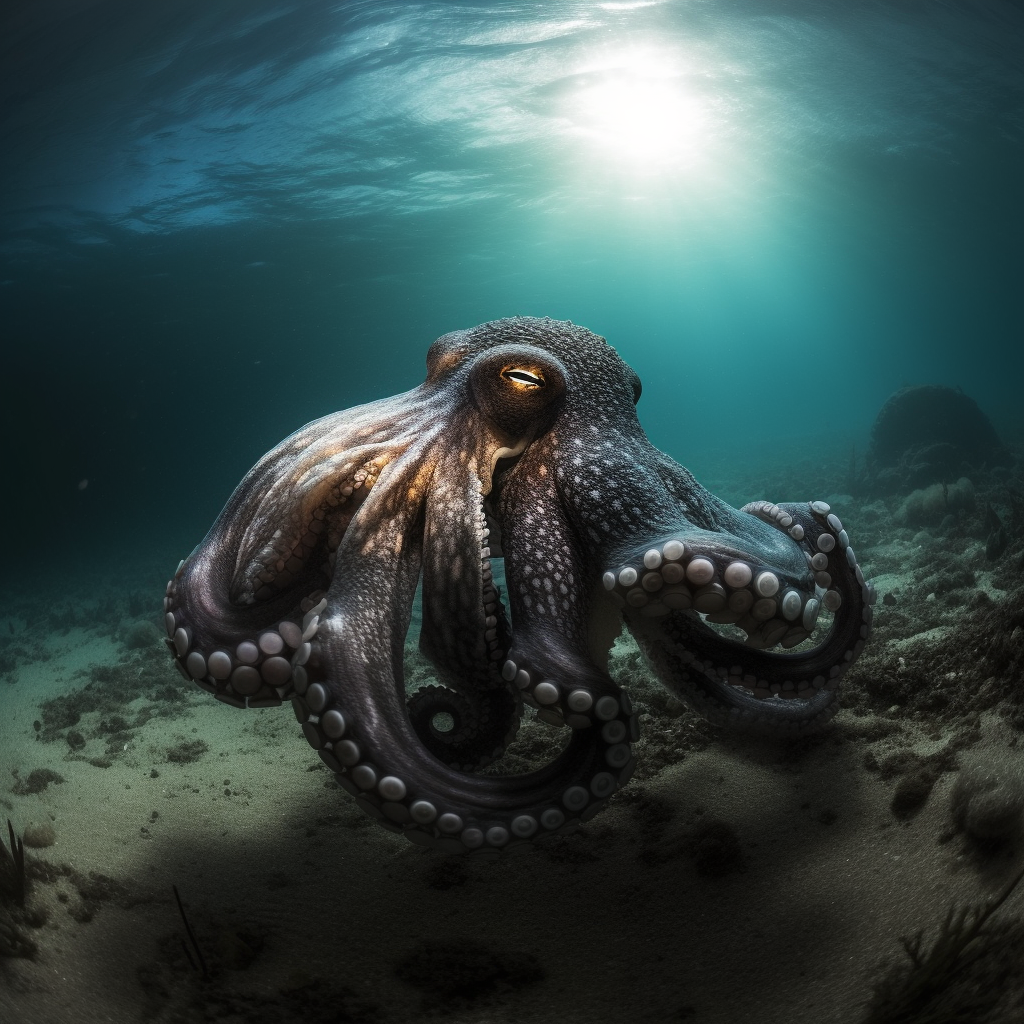
Octopuses are fascinating creatures that inhabit the depths of the ocean. These intelligent cephalopods have a unique set of behaviors, including their sleeping habits. Let’s explore how different octopus species sleep and what makes their slumber so intriguing.
A. Do Baby Octopuses Sleep?
Baby octopuses, also known as hatchlings, have a different sleep pattern compared to their adult counterparts. While adult octopuses exhibit distinct sleep stages, it is unclear whether hatchlings experience the same sleep patterns. Researchers have found that baby octopuses display periods of inactivity, but it is uncertain whether this can be classified as sleep.
During these periods of rest, hatchlings often remain stationary, hiding in crevices or camouflaging themselves to avoid predators. This behavior suggests that even though they may not experience the same sleep stages as adults, baby octopuses still require periods of rest to conserve energy and grow.
B. How Do Blue Ringed Octopuses Sleep?
Blue ringed octopuses, known for their vibrant colors and potent venom, have a unique sleep-wake cycle. These small but venomous creatures are primarily nocturnal, meaning they are most active during the night and sleep during the day.
When it comes to their sleeping habits, blue ringed octopuses typically find a safe and secluded spot to rest. They may choose to hide in crevices, burrow into the sand, or even find shelter in discarded shells. By finding a secure location, they can protect themselves from potential predators while they sleep.
C. Where Do Dumbo Octopuses Sleep and How?
Dumbo octopuses, named after the famous Disney character due to their ear-like fins, have a unique way of sleeping. These deep-sea dwellers are known for their gentle nature and fascinating appearance.
Dumbo octopuses are believed to sleep while floating in the water column. Their soft, gelatinous bodies allow them to maintain buoyancy, making it easier for them to drift in the ocean currents while they rest. This behavior allows them to conserve energy and avoid expending unnecessary effort while they sleep.
D. Do Octopuses Sleep with Their Eyes Open?
Unlike humans and many other animals, octopuses do not have eyelids. This absence of eyelids raises the question of whether octopuses sleep with their eyes open. Research suggests that octopuses do not sleep with their eyes open, but rather their eyes remain open due to their lack of eyelids.
While octopuses are awake, their eyes are highly active, constantly scanning their surroundings for potential threats or prey. However, during their sleep-like state, their eyes appear to be less responsive, suggesting a reduced level of awareness. This state of reduced responsiveness allows octopuses to rest and conserve energy without being fully asleep.
In conclusion, octopuses have diverse sleeping habits that vary across different species. From the rest periods of baby octopuses to the nocturnal slumber of blue ringed octopuses, and the floating sleep of dumbo octopuses, each species has its unique way of resting. While there is still much to learn about the sleeping patterns of these fascinating creatures, studying their sleep habits provides valuable insights into their behavior and adaptation to their marine environment.
Comparing Octopus Sleep with Other Cephalopods
A. How Do Giant Squids Sleep?
Giant squids, like octopuses, are fascinating creatures that belong to the cephalopod family. While there is still much to learn about their sleep patterns, researchers have made some interesting observations. Unlike humans and many other animals, giant squids do not have a centralized brain. Instead, their nervous system is distributed throughout their body, including their arms. This unique anatomy raises questions about how they sleep.
Studies have shown that giant squids exhibit periods of rest, which can be considered a form of sleep. During these rest periods, their body activity decreases, and they become less responsive to external stimuli. However, it is important to note that the sleep patterns of giant squids are not yet fully understood, and further research is needed to unravel the mysteries of their slumber.
B. How Do Vampire Squids Sleep?
Vampire squids, another intriguing member of the cephalopod family, have their own unique sleep patterns. These deep-sea dwellers have adapted to survive in extreme environments, where light is scarce. As a result, their sleep habits differ from those of other cephalopods.
Vampire squids have been observed to exhibit a state of “torpor,” which is similar to sleep. During this torpor state, their metabolic rate decreases, and their activity levels drop significantly. This allows them to conserve energy in their dark and deep-sea habitats. Interestingly, vampire squids also have the ability to change their skin color and texture, which may play a role in their sleep-wake cycle and communication with other members of their species.
C. How Do Squids Sleep in General?
While octopuses, giant squids, and vampire squids are all cephalopods, their sleep patterns vary. However, there are some commonalities among them. Like octopuses, squids also exhibit periods of rest, during which their body activity decreases. These rest periods are essential for their overall well-being and help them maintain a healthy balance.
Squids, including both giant squids and vampire squids, are known to be more active during the night, making them nocturnal creatures. This nocturnal behavior is likely influenced by their natural habitat and the availability of food sources. During the day, squids tend to seek shelter and rest, conserving their energy for the night’s activities.
In conclusion, while there is still much to uncover about the sleep patterns of cephalopods, including octopuses, giant squids, and vampire squids, researchers have made significant progress in understanding their unique sleep habits. By studying these fascinating creatures, scientists hope to gain insights into the evolution of sleep and its functions across different species.
Unusual Sleep Patterns in Octopuses
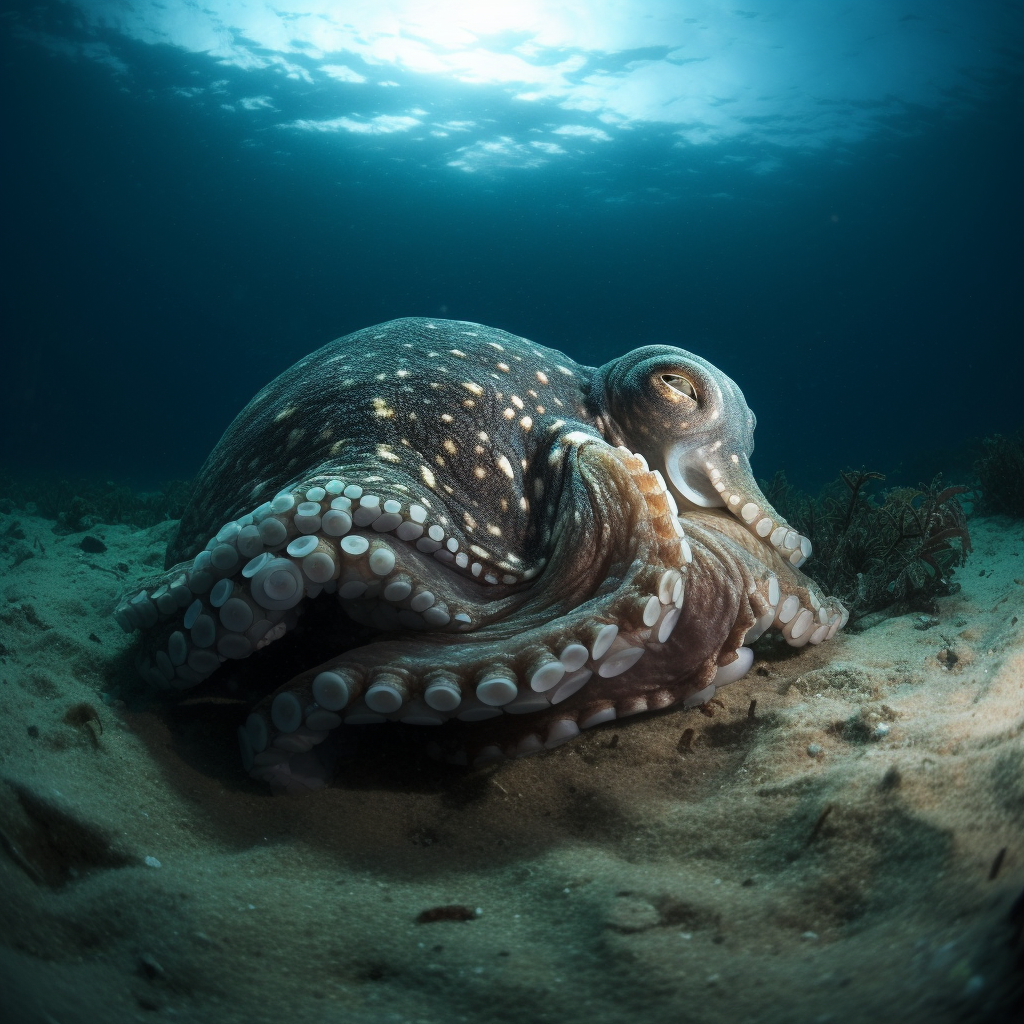
Octopuses, with their unique and fascinating characteristics, continue to captivate scientists and researchers alike. One area of particular interest is their sleep patterns. Unlike humans and many other animals, octopuses have some unusual sleep habits that set them apart. In this section, we will explore three intriguing aspects of octopus sleep: their ability to sleep upside down, their nocturnal sleep habits, and the duration of their sleep.
A. Do Octopuses Sleep Upside Down?
When it comes to sleep positions, octopuses are known for their versatility. While they can sleep in various positions, it is not uncommon to find them resting upside down. This behavior is quite unusual compared to most animals. Octopuses have a unique anatomy that allows them to cling to surfaces using their suction cups, which enables them to sleep in unconventional positions.
Researchers have observed octopuses attaching themselves to the ceilings of their tanks or hiding in crevices while sleeping upside down. This behavior may serve as a protective measure, allowing them to camouflage and avoid potential predators. It is also believed that sleeping upside down helps them conserve energy by reducing the effort required to maintain their position.
B. Do Octopuses Sleep at Night?
Octopuses are primarily nocturnal creatures, meaning they are most active during the night. As such, it is not surprising that they exhibit sleep patterns aligned with their natural behavior. While octopuses do not have a strict sleep-wake cycle like humans, they do have periods of rest and activity.
During the day, octopuses tend to be less active and may spend time in a quiet, inactive state. This period of rest allows them to conserve energy for their nighttime activities. As the sun sets and darkness envelops their environment, octopuses become more active, engaging in hunting, exploration, and other behaviors associated with their nocturnal lifestyle.
C. How Many Hours Do Octopuses Sleep?
Determining the exact duration of octopus sleep is a challenging task for researchers. Unlike humans, who have distinct sleep stages, octopuses do not exhibit clear signs of rapid eye movement (REM) sleep or non-REM sleep. However, studies have shown that octopuses do experience periods of reduced activity and rest.
The duration of octopus sleep can vary depending on factors such as age, species, and environmental conditions. Some researchers estimate that octopuses sleep for around six hours a day, while others suggest that their sleep patterns may be more sporadic and less predictable. Further research is needed to gain a deeper understanding of the sleep-wake cycle in octopuses and the factors that influence their sleep duration.
In conclusion, octopuses have unique sleep patterns that differ from those of many other animals. Their ability to sleep upside down, their nocturnal habits, and the variability in their sleep duration make them intriguing subjects of study. By delving deeper into the world of octopus sleep, researchers hope to uncover more about the fascinating behaviors and adaptations of these remarkable creatures.
The Science Behind Octopus Sleep
A. Can Octopuses Sleep?
When it comes to the fascinating world of octopuses, sleep is a topic that has intrigued scientists for years. But can these intelligent creatures really sleep? The answer is yes, octopuses do sleep, but their sleep patterns are quite different from those of humans and other animals.
Unlike humans, who have a regular sleep-wake cycle, octopuses do not have a circadian rhythm. This means that they do not have a set pattern of sleep and wakefulness like we do. Instead, octopuses have a more flexible sleep-wake cycle that can be influenced by various factors, such as environmental conditions and their own internal state.
B. What Does an Octopus Sleep Look Like?
So, what does an octopus sleep look like? Well, it’s not as simple as closing their eyes and drifting off into dreamland. Octopuses have a unique way of sleeping that involves changes in their behavior and physiology.
During sleep, octopuses often find a quiet spot to rest and may even change their color and texture to blend in with their surroundings. This behavior serves as a form of camouflage, helping them to remain hidden and protected while they sleep.
Interestingly, octopuses also exhibit different sleep stages. They can enter a state of deep sleep where their body relaxes, and their muscles become limp. This state is similar to the REM (rapid eye movement) sleep that humans experience. During this deep sleep, octopuses may even show signs of dreaming, as their eyes move rapidly beneath their closed eyelids.
C. How Does Doctor Octopus Sleep?
Now, you might be wondering, how does Doctor Octopus, the famous fictional character from the Marvel universe, sleep? Well, as a human with mechanical tentacles, Doctor Octopus doesn’t sleep like a real octopus. However, if we were to imagine how he might sleep, it would likely involve a similar pattern to that of a real octopus.
Doctor Octopus would find a quiet place to rest, perhaps in his laboratory or secret hideout. He would relax his mechanical tentacles and close his eyes, entering a state of deep sleep. During this time, he might even have vivid dreams, just like a real octopus.
While Doctor Octopus’s sleep patterns are purely fictional, they are inspired by the unique sleep behaviors of real octopuses. These incredible creatures continue to captivate scientists and researchers, who strive to understand the mysteries of their sleep and the fascinating world of octopus neuroscience.
In conclusion, octopuses do sleep, but their sleep patterns and behaviors are quite different from those of humans. Their flexible sleep-wake cycle and unique sleep stages make them truly intriguing creatures to study. As scientists continue to delve into the science behind octopus sleep, we gain a deeper understanding of the complex lives of these remarkable marine creatures. Conclusion
In conclusion, octopuses are fascinating creatures that possess unique sleeping patterns. While they don’t have a traditional sleep-wake cycle like humans, they do engage in periods of rest and exhibit behaviors that indicate a form of sleep. Octopuses are known to change their color and texture during these resting periods, suggesting that they may be dreaming or experiencing some form of neural activity. Additionally, their ability to camouflage and hide during sleep helps protect them from predators. Despite their lack of a centralized brain, octopuses have complex nervous systems that allow them to navigate their environment and exhibit intelligent behaviors. Further research is needed to fully understand the sleep patterns of these enigmatic creatures, but one thing is clear – octopuses are truly remarkable and continue to surprise us with their incredible abilities. So the next time you come across an octopus, remember that even though they may not sleep like we do, they still need their rest to thrive in their underwater world.
Frequently Asked Questions
Q1: Do baby octopuses sleep?
Yes, baby octopuses do sleep. Like adult octopuses, they also have a sleep-wake cycle. They exhibit periods of rest and activity, which is a form of sleep. Their sleep patterns are a part of their natural behavior and are crucial for their development and survival.
Q2: How long does an octopus sleep?
The length of an octopus’s sleep can vary based on species and environmental factors. On average, an octopus might sleep for about 6-9 hours a day. This is part of their circadian rhythm, a biological process observed in many organisms.
Q3: Where do Dumbo octopuses sleep?
Dumbo octopuses, like other deep-sea cephalopods, rest on the ocean floor or in crevices. They find a safe and quiet place to rest, reducing their activity and metabolic rate. This is considered their sleep period.
Q4: How do giant squids sleep?
The sleep patterns of giant squids are not well-studied due to their deep-sea habitat. However, it is believed that they have periods of rest and activity, similar to other cephalopods. They likely find a safe spot in the depths of the ocean to rest.
Q5: Do octopuses sleep with their eyes open?
Yes, octopuses do sleep with their eyes open. They don’t have eyelids like humans do, so they can’t close their eyes. However, they do show changes in skin color and pattern during their rest cycle, which is a sign of sleep.
Q6: How do blue-ringed octopuses sleep?
Blue-ringed octopuses, like other octopuses, have periods of rest and activity. During their rest period, they often hide in crevices or under rocks, showing less activity and changes in skin color and texture. This is considered their sleep time.
Q7: Do octopuses sleep at night?
Octopuses are primarily nocturnal creatures, meaning they are most active during the night. However, they do have periods of rest or sleep during both day and night. Their sleep-wake cycle is a part of their natural behavior and survival strategy.
Q8: How many hours do octopuses sleep?
On average, an octopus might sleep for about 6-9 hours a day. However, this can vary based on species, age, and environmental factors. Sleep in octopuses, like in other animals, is essential for their health and survival.
Q9: How do Dumbo octopuses sleep?
Dumbo octopuses sleep by finding a safe and quiet place in the deep sea, often on the ocean floor or in crevices. They reduce their activity and metabolic rate during this rest period.
Q10: Can octopuses sleep?
Yes, octopuses do sleep. They have a sleep-wake cycle, with periods of rest and activity. During their rest period, they show changes in skin color and pattern, which is a sign of sleep. This sleep behavior is a part of their natural life cycle and is crucial for their survival and health.


